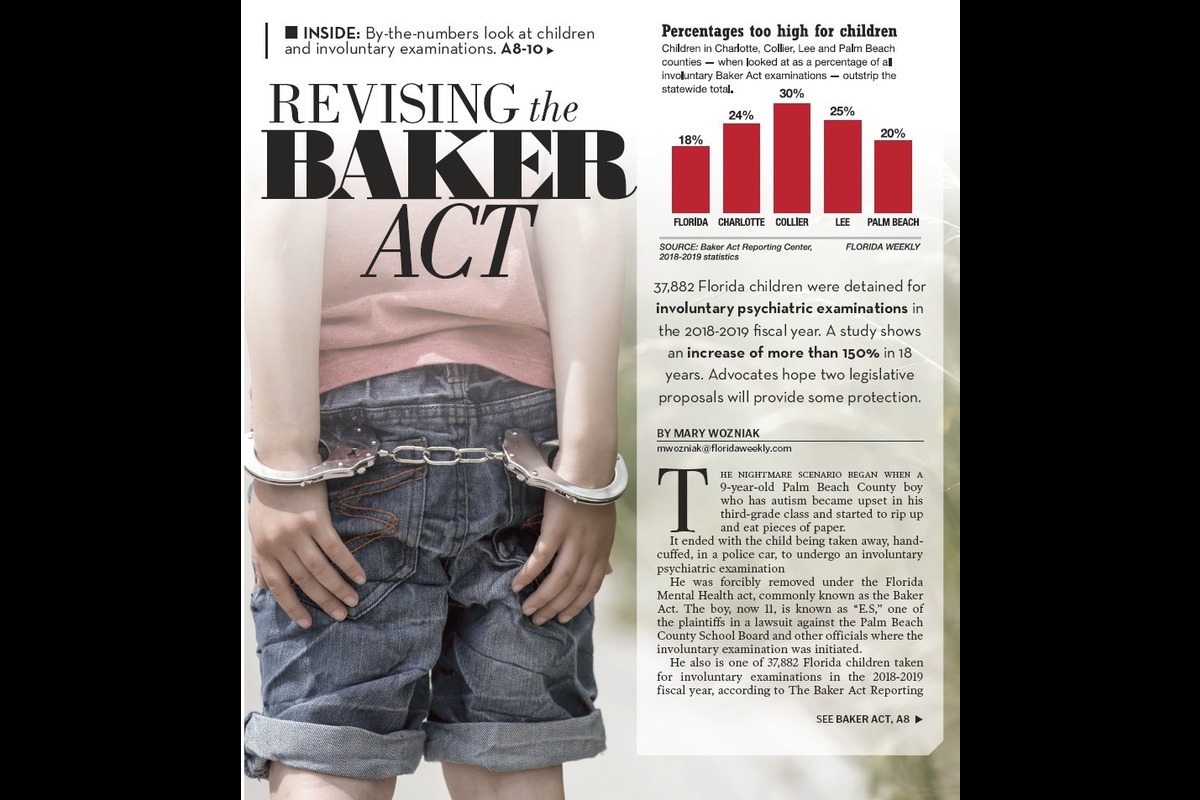
Florida baker act law enforcement and the legal requirements you must be aware of
Introduction
Florida Baker Act, law enforcement organizations, is in charge of enforcing mental health laws. Florida Baker Act law allows family members, medical experts, and law police to compel someone to undergo an arbitrary 72-hour mental health evaluation. Anyone can get Baker Acted, which might be terrifying for all of them. This blog will offer you a general outline of what to expect if it happens to a family member. But remember that things move incredibly quickly during Florida Baker Act Law procedures. Once the processes begin, calling or emailing your legal options is necessary.
Florida Baker Act law enforcement agencies’ name is on the law. Notably by releasing individuals who posed no harm to themselves or others as part of the Florida Mental Health Act at the start of the 1970s. Many persons with mental health issues have their rights restored thanks to this legislation. How does the Florida Baker Act Law operate, though? The solution is in the blog post below.
Requirements of Florida Baker Act law
The Florida Baker Act Law has the following requirements, and the subject must meet one or both of the following conditions:
- The person must also be able to refuse permission to a voluntary examination, be sensitive to harmful self-neglect that willing family and friends cannot treat, and be at substantial risk of badly injuring oneself or others.
- The majority of those accepted under Florida’s Baker Act Law may be dangerous to themselves since most cases fall under the second classification, harm to oneself or others, including suicidal thoughts or actions.
Transportation
The first crucial stage of the Florida Baker Act law is transportation. The law requires that the police transport anyone brought in for an unannounced mental health examination. The authorities must transport the victim to the closest Baker Act Receiving Facility (BARF) where the crime happened.
The subsequent step is acceptance into the school for the 72-hour exam. A person can stay under surveillance for only part of the three days; keep in mind that an examination might last up to 72 hours. After that, the facility is free to conduct a mental assessment. Medical assessment determines if the patient qualifies for a longer course of treatment. After that, you are free to decline medication. However, medical staff usually claim that you are “non-compliant” and that you need the medicine more often.
During the 72-hour evaluation window, the institution must select one of three possibilities. They can choose to release the patient, request that they be admitted for longer-term mental health treatment, or ask the patient to enter (if he is mentally competent) voluntarily.
What criteria does the Florida Baker Act Law use?
The requirements that must be considered by a court to grant a petition for more extended inpatient treatment. The law disapproved of volunteer care and was either negligently detrimental or dangerous to oneself or others. The inpatient environment must also include the fewest constraints essential for the patient’s recovery, which is the third criterion. It is an important caveat and the main reason a court would not grant a petition for more prolonged treatment. The court may, however, order the patient to continue receiving inpatient treatment after granting the petition. The duration is up to 90 days or six months.
Legal actions
The Florida Baker Act law court must schedule the involuntary placement hearing within five days. If the defendant does not have a different lawyer, the court will appoint a public defender to represent them. The court then hears testimony to determine whether the person is competent to give treatment consent. Finally, the court appoints a guardian advocate if the person is incompetent. The court will issue an order remanding the person to an inpatient mental health facility for six months if it determines the person meets the requirements for involuntary placement. The court may extend this deadline.
Conclusion
Florida Baker Act requires police to obtain a “Risk Protection Order.” As a result, the individual can leave after 72 hours, even if the mental health court does not have a legally obligatory treatment commitment. These risk protection orders (RPOs) provide the police with more authority to enforce. Additionally, these RPOs have the control to ask a court to suspend a person’s gun rights for a period of up to a year. Talmadge Law Firm can assist you in navigating complicated matters because of its extensive experience. For instance, the police can ask you to sign away your Second Amendment rights.
The Florida Baker Act Law’s statutes and provisions are fully listed here. In addition, to carry out the Florida Baker Act laws, the Department of Children and Family Services (DCF) has also released several administrative guidelines. Achieving release, however, may be more difficult due to the development of several possible traps.
Among other organizations, the court, laws enforcement, medical experts, and mental health specialists can all enforce the Florida Baker Act laws. Therefore, you have a few alternatives if you’re worried about a friend’s or relative’s safety and believe a Baker Act is necessary to assess their mental health. Call the police first if the person is actively displaying signs of a severe mental illness, threatening to harm himself or others, or acting removed from reality. Management will force the baker to work quickly as a result.
To make the transition into treatment as seamless as possible, it is beneficial for all parties if the individual submitting the petition takes the time to select the finest mental health hospital and Florida Baker Act law-receiving facility.




